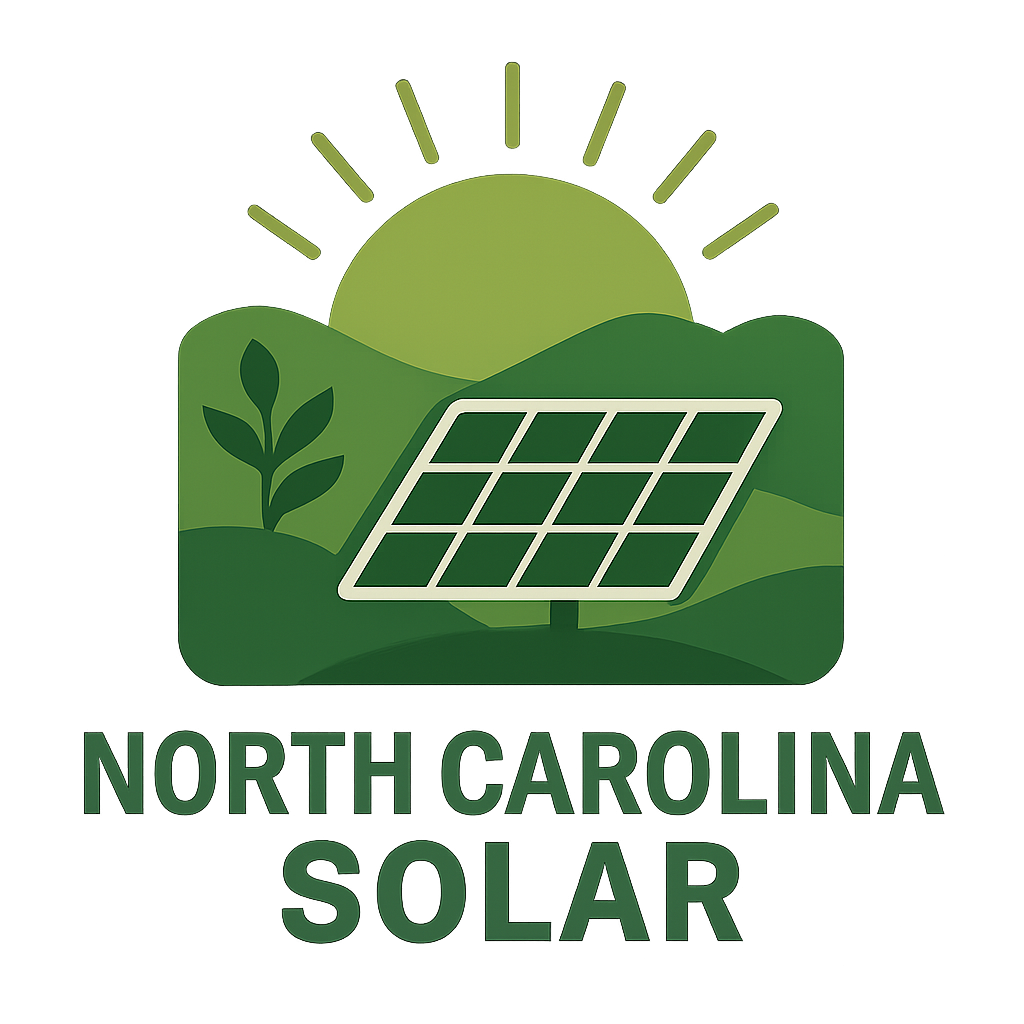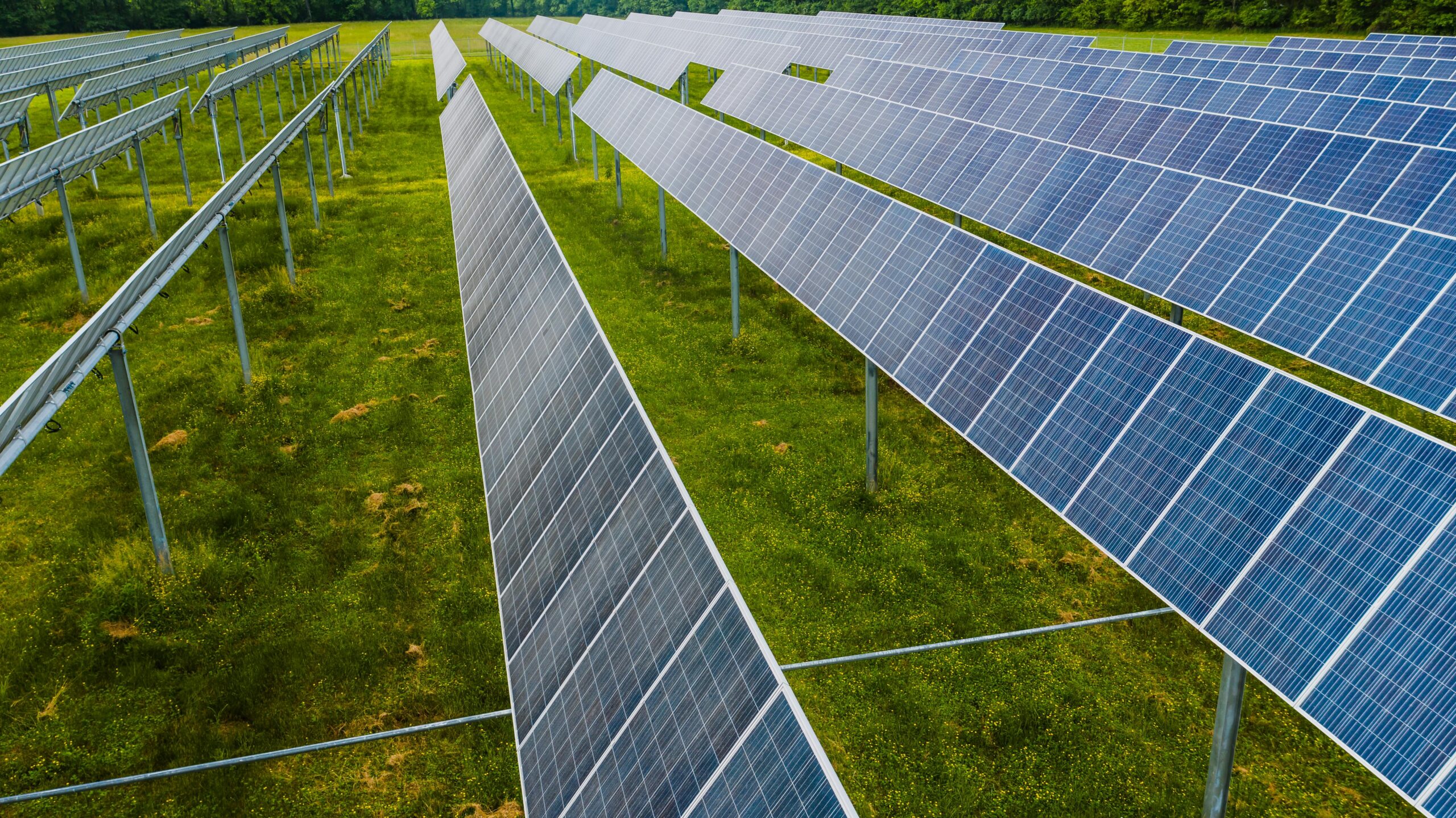
North Carolina Solar Panels Guide: Why North Carolina is Perfect for Solar Energy
North Carolina stands as the second largest solar state in the nation, with over 6,152 MW of installed solar capacity as of 2025. The state’s abundant sunshine—averaging 213 sunny days per year—combined with supportive policies and attractive incentives creates an ideal environment for solar panel installations.
The Tar Heel State has embraced renewable energy through its Renewable Energy and Energy Efficiency Portfolio Standard, which has driven rapid industry growth. This regulatory support, combined with North Carolina’s geographic advantages, has positioned the state as a leader in both residential and utility-scale solar development.
Cities We Serve
Why Choose Solar in North Carolina
Massive Savings: Save up to $37,659 over 25 years with systems paying for themselves in just 8-10 years
Generous Incentives: Access up to $9,000 in Duke Energy PowerPair rebates plus 30% federal tax credits
Energy Independence: Lock in predictable rates for 25+ years and protect against utility rate increases
Increase Home Value: Solar installations boost property values by 6.9% without increasing property taxes
Abundant Sunshine: 213 sunny days per year provide excellent solar energy production potential
Strong Warranties: Premium systems include 25-30 year warranties for long-term peace of mind
Homeowners choosing solar in North Carolina can lock in predictable energy costs for over 25 years while protecting themselves against rising utility rates. Electricity costs have increased 25% from 2021 to 2024, making solar an increasingly attractive hedge against future rate hikes.
North Carolina Solar Panel Costs and Savings
The average North Carolina homeowner requires a 13.96 kW solar panel system to cover their electricity needs, with costs averaging $32,669 before incentives. After applying the 30% federal tax credit, homeowners can expect to pay approximately $22,868 for a complete installation. The price per watt typically ranges from $1.99 to $2.99, with the current state average at $2.34 per watt.
These upfront costs translate into substantial long-term savings. The average homeowner saves $37,659 over the 25-year warranty period of most solar panels, with systems typically paying for themselves within 10.59 years. When factoring in available incentives, the payback period often drops to just 8.7 years, after which homeowners enjoy decades of free electricity.
The financial benefits extend beyond direct savings on electricity bills. Solar installations are exempt from property taxes in North Carolina, saving homeowners approximately $120 annually on a typical system. This exemption applies to the added home value from solar panels, ensuring that the investment doesn’t increase your property tax burden.
The Solar Installation Process
Professional solar installations in North Carolina typically follow a structured process designed to ensure optimal system performance and regulatory compliance. The process begins with a comprehensive site assessment, including roof analysis, shading evaluation, and energy usage review to determine appropriate system sizing.
Solar Installation Process in North Carolina
Initial Consultation and Design
- Comprehensive site assessment and roof analysis
- Energy usage evaluation and system sizing
- Custom system design with optimal panel placement
- Financial analysis including all available incentives
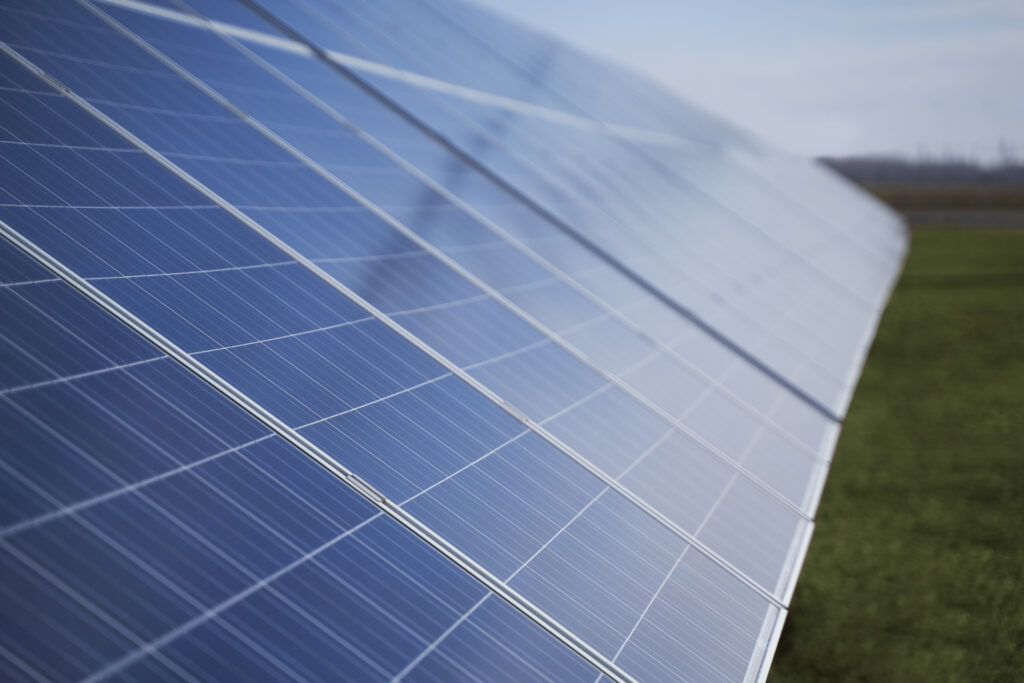
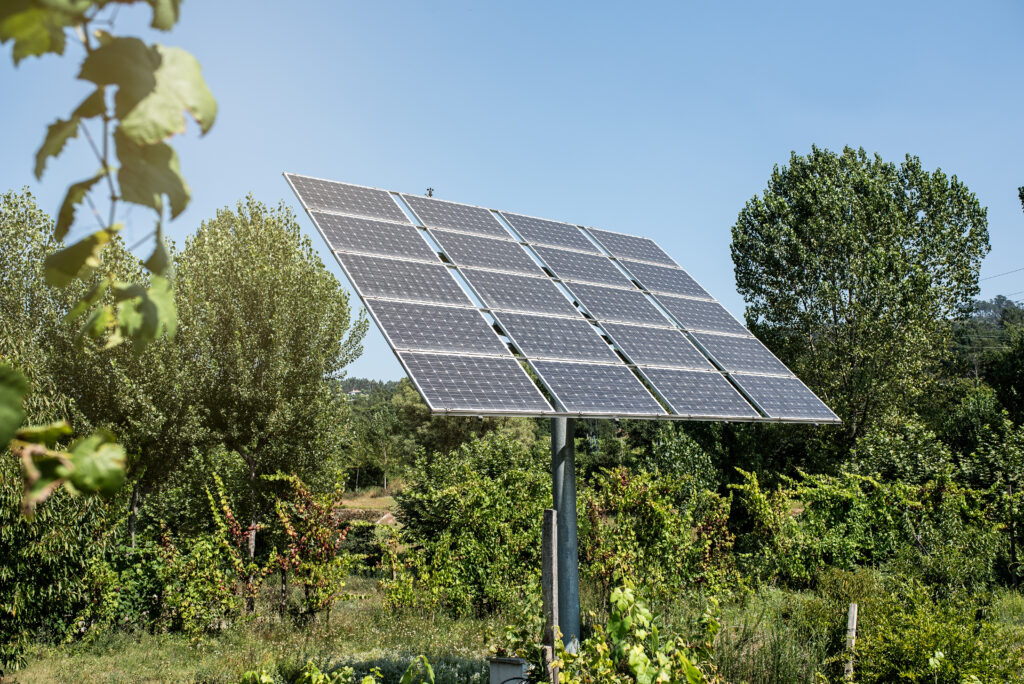
Permits and Approvals
- Building permit applications and regulatory compliance
- Utility interconnection agreements and Trade Ally coordination
- HOA approvals and local jurisdiction requirements
- Duke Energy PowerPair rebate application processing
Professional Installation
- Roof preparation and mounting system installation
- Solar panel placement and inverter installation
- Electrical connections and safety system integration
- Quality testing and system commissioning
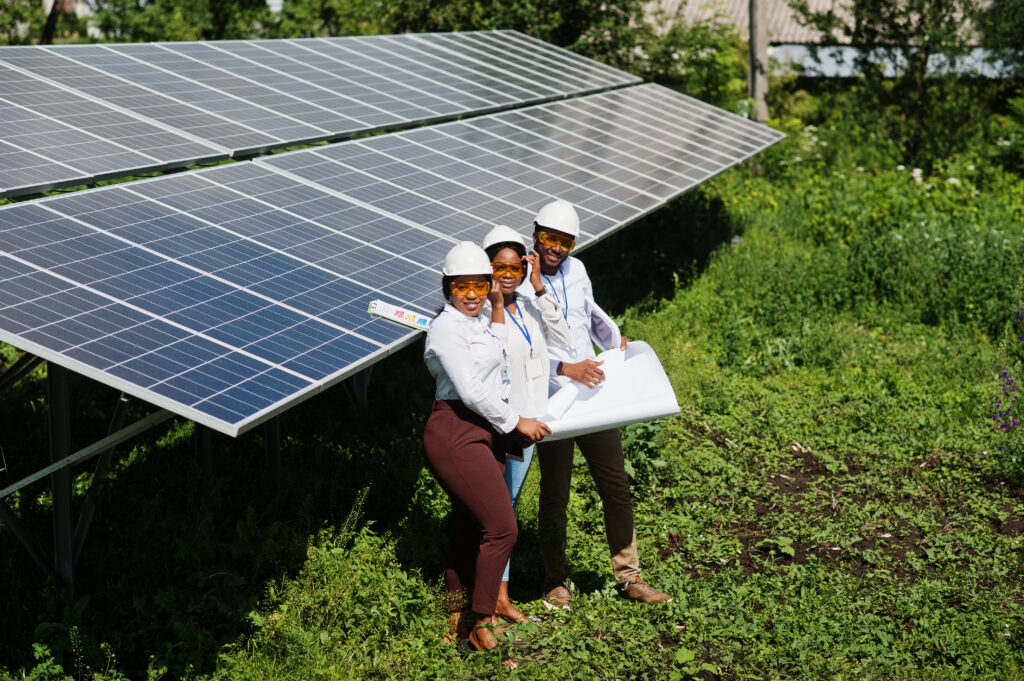
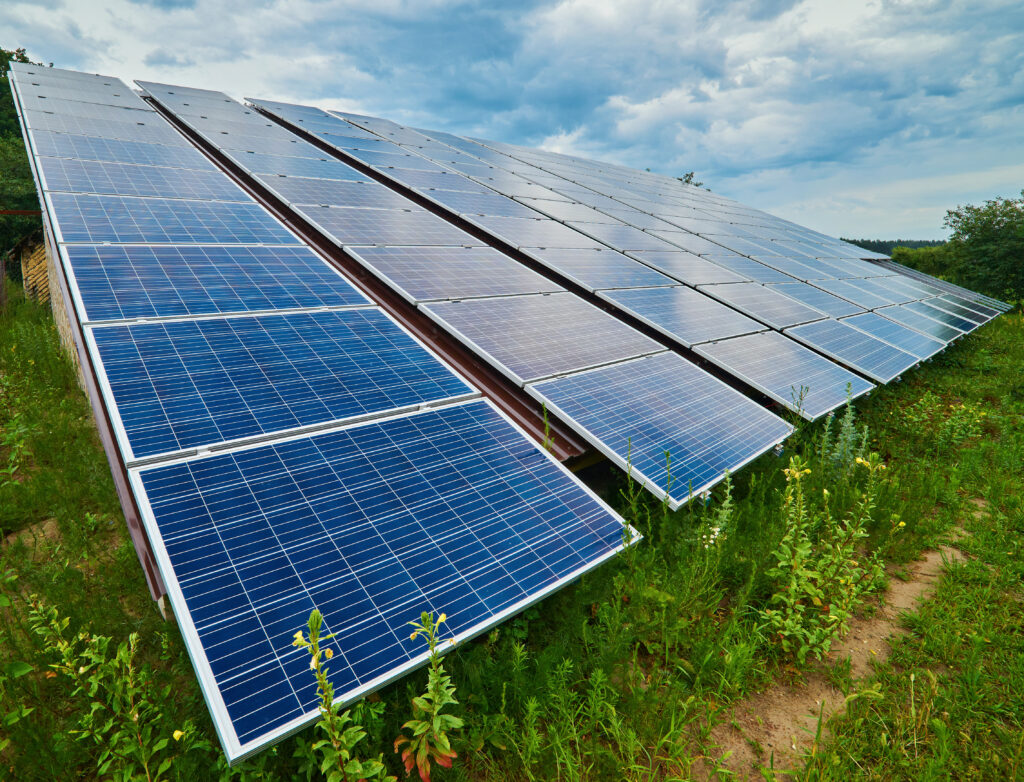
Inspection and Activation
- Local government inspection and approval
- Utility approval for grid interconnection
- System activation and monitoring setup
- Homeowner training and warranty documentation
Quality installations include comprehensive monitoring systems that allow homeowners to track energy production and identify any performance issues. Professional installers also provide detailed system documentation and warranty information to ensure homeowners understand their investment and maintenance requirements.
Massive Solar Incentives Available in North Carolina
Duke Energy PowerPair Program
Duke Energy’s PowerPair program represents one of the most generous solar incentives available nationwide, offering North Carolina homeowners up to $9,000 in combined rebates for solar and battery installations. The program provides $0.36 per watt for solar panels (up to $3,600 for systems of 10kW or less) and $400 per kilowatt-hour for battery storage (up to $5,400 for batteries of 13.5kWh or less).
This substantial rebate operates on a first-come, first-served basis with limited capacity. As of October 2024, approximately 64% of capacity remained for Duke Energy Carolina customers and 47% for Duke Energy Progress customers. The program requires installation by a Duke Energy Trade Ally and must be completed within specific timeframes to maintain eligibility.
When combined with the federal tax credit, PowerPair participants can see up to 47% off their total system cost. For maximum savings, homeowners can also participate in the EnergyWise Battery Control program, which provides an additional $30-40 monthly credit for allowing Duke Energy to access stored battery power during peak demand periods 30-36 times per year.
Federal Solar Tax Credit
The federal solar Investment Tax Credit provides a 30% credit on the total cost of solar installations, available through 2032. For an average North Carolina system, this equals approximately $6,750 in savings. However, the current rate is scheduled to expire after 2025, making immediate action potentially worth thousands in additional savings.
This credit applies to both solar panels and battery storage systems, and can be combined with all state and utility incentives. Homeowners must have sufficient tax liability to claim the full credit, though unused portions can be carried forward to future tax years.
Additional Financial Benefits
Beyond the major incentives, North Carolina offers several other financial advantages for solar adopters. The state provides property tax exemptions for solar installations, ensuring that the added home value doesn’t increase annual tax burdens. Net metering programs are available through most utilities, though specific terms vary by provider.
The state also maintains a revolving loan program specifically for renewable energy installations, with interest rates capped at 8% and terms extending up to 20 years. This program provides an alternative financing option for homeowners who prefer not to pay cash upfront but want to maintain system ownership and maximize long-term savings.
Solar Technology Options for North Carolina
Panel Types and Performance
Monocrystalline solar panels represent the most popular choice for North Carolina installations due to their high efficiency and excellent performance in varied weather conditions. These panels work effectively in both direct sunlight and partially cloudy conditions, making them well-suited to the state’s climate patterns.
Modern panels typically produce around 450 watts in full sunlight, with premium options reaching 430-450 watts per panel. Higher-efficiency panels often justify their increased upfront cost through greater electricity production over the system’s lifetime, particularly important given North Carolina’s excellent solar resource.
The most reliable panels come with 25-year warranties and are designed to maintain at least 80-86% of their original output after 25 years. Premium manufacturers often extend warranties to 30 years, providing additional peace of mind for homeowners making this substantial investment.
Battery Storage Considerations
North Carolina’s recent changes to net metering policies have increased the value proposition for battery storage systems. Rather than receiving full retail credit for excess solar production, many homeowners now benefit from storing that energy for later use during peak rate periods or power outages.
The average power outage duration in North Carolina is approximately 36 hours, making battery backup systems particularly valuable for maintaining critical loads during storms and grid disruptions. Modern lithium-ion batteries can provide several days of backup power when properly sized for essential home systems.
Battery systems also qualify for both the federal tax credit and Duke Energy’s PowerPair rebates, significantly reducing the cost of adding storage to a solar installation. The combination of backup power capabilities and enhanced savings potential makes batteries an increasingly attractive option for North Carolina homeowners.
Selecting Solar Installers in North Carolina
Key Qualifications and Certifications
Professional solar installers in North Carolina must hold appropriate electrical contractor licenses from the State Board of Examiners of Electrical Contractors. For projects involving structural improvements over $30,000, general contractor licensing may also be required. These licensing requirements ensure installers meet basic competency and insurance standards.
NABCEP certification represents the gold standard for solar installers, indicating advanced training and expertise in photovoltaic system design and installation. While not required by law, NABCEP certification demonstrates commitment to industry best practices and ongoing education in evolving solar technologies.
Trade Ally status with Duke Energy is essential for homeowners seeking PowerPair rebates. This designation requires additional training and certification specific to Duke Energy’s programs and technical requirements. Installers without Trade Ally status cannot process PowerPair applications, potentially costing homeowners thousands in available incentives.
Evaluating Installation Proposals
Quality solar proposals should include detailed system specifications, performance projections, and comprehensive financial analysis including all available incentives. Reputable installers provide multiple equipment options with clear explanations of the trade-offs between cost and performance for different panel and inverter selections.
Warranty coverage represents a critical evaluation factor, with quality installers offering minimum 20-year warranties on equipment and workmanship. Some premium installers provide extended warranties or performance guarantees that promise specific electricity production levels throughout the system’s lifetime.
Financial transparency is essential when comparing proposals. Installers should clearly explain all costs, incentive processing, financing options, and projected savings. Quality installers provide conservative performance estimates and detailed explanations of factors that might affect actual system performance.
Financing Your Solar Investment
Purchase Options and Benefits
Cash purchases provide the fastest return on investment and access to all available incentives without financing costs. Homeowners with sufficient liquidity often find cash purchases offer the highest lifetime savings, with systems typically paying for themselves within 8-10 years.
Solar loans have become increasingly popular, allowing homeowners to go solar with little or no money down while maintaining system ownership and incentive eligibility. North Carolina’s revolving loan program caps interest rates at 8% with terms up to 20 years, though many private lenders offer competitive alternatives with varying terms and qualification requirements.
Leasing and power purchase agreements provide access to solar with minimal upfront costs, though they typically offer lower long-term savings since a third party owns the system. A 2017 law authorized solar leasing in North Carolina, expanding options for homeowners who cannot qualify for traditional financing or prefer not to own the system directly.
Maximizing Financial Benefits
The timing of solar installations can significantly impact available incentives. The federal tax credit’s scheduled expiration after 2025 creates urgency for homeowners considering solar, as waiting could cost nearly $10,000 in lost savings for a typical system.
Duke Energy’s PowerPair program operates on limited capacity with no announced plans for expansion, making immediate action important for homeowners in Duke Energy territory who want battery storage. The combination of federal, state, and utility incentives currently available may not persist indefinitely, emphasizing the value of acting while these programs remain available.
Professional installers can help homeowners understand the optimal timing for their specific situation, including tax planning considerations for maximizing federal credit benefits and coordination with utility rebate programs.
Net Metering and Utility Programs
North Carolina’s net metering landscape varies significantly by utility provider, affecting the economics of solar installations. Duke Energy customers can access net metering through Bridge Rate programs, though compensation for excess generation has been reduced from full retail rates to avoided cost rates in recent years.
Other utilities maintain more favorable net metering terms. Dominion Energy provides full retail rate credits for excess generation, with annual payouts for unused credits. Blue Ridge EMC offers customers a choice between net metering at retail rates or net billing at approximately 5 cents per kilowatt-hour.
These policy differences highlight the importance of understanding your specific utility’s programs when evaluating solar investments. Recent changes to net metering policies have increased the value of battery storage systems, as homeowners can store excess production rather than selling it to the grid at reduced rates.
Future Outlook for North Carolina Solar
North Carolina’s solar industry continues expanding rapidly, supported by utilities’ increasing commitments to renewable energy. Duke Energy has announced plans for multiple gigawatts of additional solar capacity over the next six years, while maintaining programs to support distributed residential and commercial installations.
The state’s manufacturing sector is also growing, with new solar panel and battery production facilities strengthening the supply chain and supporting local jobs. This industrial development, combined with continued policy support, positions North Carolina as a long-term leader in solar energy adoption.
Environmental regulations and corporate sustainability commitments are driving additional demand for clean energy solutions. Many major employers in North Carolina have committed to renewable energy goals, creating a supportive environment for continued solar growth across all market segments.
Energy storage deployment is accelerating alongside solar installations, with Duke Energy’s virtual power plant programs demonstrating the grid benefits of distributed battery systems. This integration of solar and storage technologies represents the future of residential energy systems in North Carolina.
Ready to Start Saving with Solar in North Carolina?
Don’t miss out on Duke Energy’s PowerPair rebates—capacity is limited and filling fast!
Take advantage of the most generous solar incentives North Carolina has ever offered. With up to $9,000 in utility rebates, 30% federal tax credits, and property tax exemptions, qualified homeowners can save nearly 50% on their solar investment.
Get Your Free Solar Quote Today:
- Custom system design optimized for your home and energy usage
- Detailed financial analysis including all available incentives and rebates
- NABCEP-certified installation professionals with proven track records
- Duke Energy Trade Ally certification for maximum rebate eligibility
